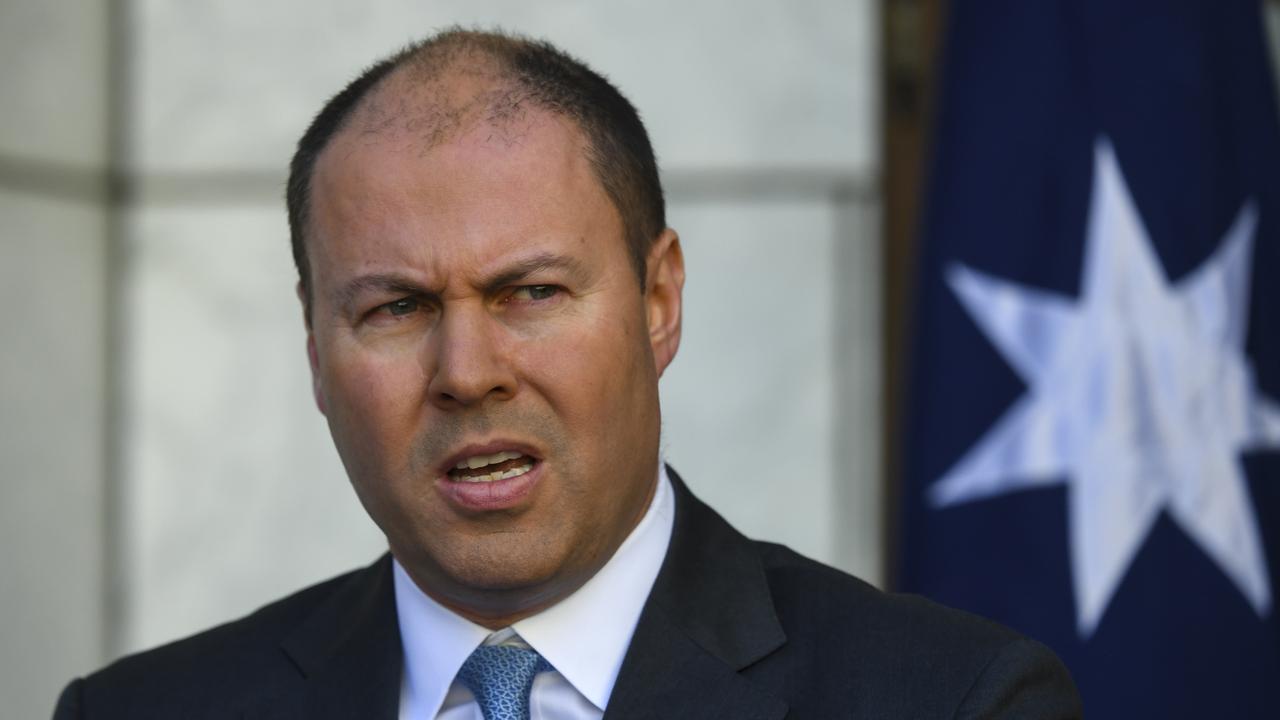GST hike on the cards to cover costs of stamp duty, payroll tax
Economists say now is the time to plot for daring tax reform to help steer Australia out of its first recession in nearly three decades.

A fiscal restructure to help plot a path through the economic chaos of the virus crisis may pit two unpopular taxes against one another: lifting and broadening the GST or stamp duty.
New independent analysis from consultancy firm PwC has proposed hiking the GST from 10 per cent to 12.5 per cent and extending it to include education, health and fresh food to cover the revenue lost from potentially ditching stamp duty and payroll tax.
It says this increased tax on goods and services would raise about $40 billion a year in a reform that would serve as a stimulus to help lift Australia’s GDP.
“As broad consumption taxes have a relatively minor distortionary impact on the behaviour of individuals and businesses, they do not impact economic growth to the same extent as other taxes such as corporate and (progressive) personal income taxes,” the PwC report says.
RELATED: Rush for $10,000 crashes ATO site
RELATED: Grim sign for Aussie house prices
The proposal comes after NSW Treasurer Dominic Perrotet released a review last week which implored a similar restructure.
He argued that an increase in GST and elimination of property stamp duties would help propel the economy out of its first recession in nearly 30 years.
The report, commissioned by NSW, suggested broadening the GST to include fresh food, education and water sewerage, and providing an option to homeowners to either pay a stamp duty or a land tax.
According to the PwC report, the wider net to charge GST as well as a hike to 12.5 per cent would raise $40 billion, with $12.8 billion from NSW, $10 billion in Victoria and another $7.9 billion accounted for in Queensland.

The tax reform makes sense, says AMP Capital chief economist Shane Oliver.
“In Australia we rely very heavily on income taxes such as personal income tax and corporate tax relative to indirect tax such as GST,” he told news.com.au.
“The problem with that is that the GST is less economically distortionary – it’s a more efficient tax, it doesn’t distort people’s decisions. Whereas taxes on profit income do and they also act as a disincentive.”
Dr Oliver said he supports stamp duty being replaced with a land tax but warned there would be a costly transitionary period where state governments would miss out on revenue.
“So an increase in the GST could presumably cover that period,” he said.
“In principle I think it’s a sensible move. It’s something that has been talked about for years and most economists would say we should rely more on GST and less on income tax and get rid of stamp duty.”
Such a proposal is fraught with danger for policy makers though because it is hugely unpopular and would face a tough passage through the senate but Dr Oliver says now is the time to attempt sensible reforms.
“Stamp duty is a highly inefficient tax that stops people from transacting property, stops older people from downsizing when they should and imposes a huge cost on homebuyers getting into the property market,” he said.
“It also results in less flexibility in the system because you’ve got this huge tax every time you want to move house for a job’s sake, so it stops people moving from state-to-state for work.
“Getting rid of it makes a lot of sense but it would leave a hole in state government finances when that occurs.”




